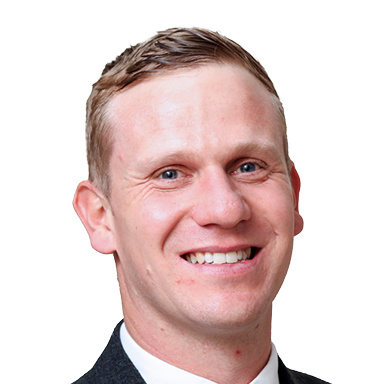If you have a musculoskeletal issue, an orthopaedic surgeon can diagnose and treat the problem.
An orthopaedic surgeon specialises in diagnosing, treating and surgically correcting disorders and injuries related to the musculoskeletal system. This system includes bones, joints, ligaments, tendons, muscles and nerves.
Orthopaedic surgeons treat a wide range of conditions, from fractures and sprains to degenerative diseases, congenital disorders, and sports injuries.
Dr Renier Kriel, an orthopaedic surgeon at Mediclinic Winelands Orthopaedic Hospital, explains that orthopaedic medicine has different areas of specialisation These include surgery for the spine (neck, back, and lower back), shoulder, hand, hip, knee, and foot and ankle. Elbow surgery is usually done by either a shoulder or hand specialist. There is also a special focus on children's bone and joint issues. Some orthopaedic surgeons focus on treating bone cancers, bone infections, and repairing bone deformities.
Orthopaedic surgery includes treatments for both bones and soft tissues. Bone procedures focus on problems with cartilage and joints, often caused by conditions like osteoarthritis or wear and tear, which are more common in older people. These treatments might involve smoothing or resurfacing the joint or replacing it with an artificial joint. Soft tissue procedures involve repairing or rebuilding muscles, tendons, and ligaments, and can treat injuries from sports or problems that develop over time as tendons weaken with age.
“It’s common within big centres in South Africa for surgeons to sub-specialise within their field, where they focus on one or two fields within orthopaedics,” says Dr Kriel, who explains that the doctors at Mediclinic Winelands Orthopaedic Hospital are all orthopaedic sub-specialists.
Pain relief and improved quality of life
Orthopaedic surgical procedures can be divided into trauma (emergency) surgery and elective (planned) surgery. Trauma or emergency surgery often involves fractures, joint dislocations, infections, nerve injuries and ruptured tendons.
“Elective orthopaedic surgery addresses injuries or problems that have been bothering a patient for a while, which have become debilitating and affect activities of daily living,” says Dr Kriel. “
“This may include minor procedures such as arthroscopically evaluating and cleaning out a joint to extensive surgery such as total joint replacements or spinal fusions. The aim of elective surgery is to address a patient’s pain and impairment and ultimately improve their quality of life.”
Dr Kriel says that when patients experience a problem, they usually start by seeing their GP. The GP may order tests like X-rays or ultrasound if needed and will first try to treat the problem without surgery. This could include using anti-inflammatory medications for pain relief, referring the patient to a physiotherapist, biokineticist, or occupational therapist, and suggesting lifestyle changes. Surgery is only recommended if it’s clearly necessary.
If the patient does not improve after these measures have been taken, the GP may refer them to an orthopaedic surgeon. You can also choose to see an orthopaedic surgeon without a GP referral.
What happens at my first appointment with an orthopaedic surgeon?
During your first visit, the surgeon will ask you detailed questions about your main problem and then do a thorough physical exam. This helps them make a possible diagnosis. You may be sent for further tests, such as X-rays, scans, or lab work, to confirm this. After reviewing all the information, the surgeon will explain the diagnosis to you and discuss different treatment options, along with a plan for managing the condition.
“We often aim to exhaust conservative therapeutic measures first before we consider surgery, but this won’t always be in the patient’s best interest,” says Dr Kriel. “If you have a condition where surgery is clearly indicated, we will discuss the surgical procedure in detail and explain the risks and possible complications involved.
“Rehabilitation after surgery is very important and plays a big role in the outcome and success of the surgery. We depend on our allied health professionals, such as physiotherapists and biokineticists, to help with the rehabilitation of our patients.”
To book an appointment with an orthopaedic surgeon, contact our Mediclinic Engagement Centre via WhatsApp 087 240 6367 or click here for alternative contact options.
Further publications on the topic
Doctors 1


